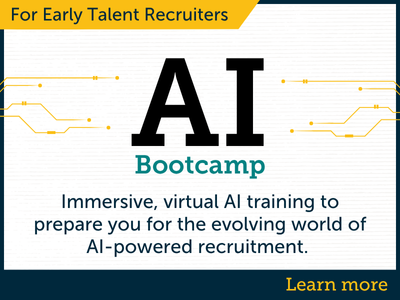The inaugural “Accounting Without Walls” Festival, hosted by the University of Southern California Leventhal School of Accounting in March was a lively celebration of diversity, equity, and inclusion (DEI) in the accounting community.
Held at USC Alumni Park, the event was a bustling hub of music, food, cultural performances, and educational activities. Attendees—including students, faculty, industry professionals, and community members—enjoyed a day filled with engaging keynote addresses, vibrant cultural performances, and interactive experiences, such as a flea market, photo booths, and meet-and-greet sessions with community partners.
Highlights included a keynote speech by Kathy Johnson, CPA, and captivating performances by the Trojan Men Acapella and various dance groups. The festival also featured innovative DEI presentations by USC accounting diversity groups, interactive selfie booths, and DEI recruitment videos on a large LED wall.
Curated by BLVDMRKT, the food offerings showcased diverse cuisines from minority-owned businesses. The event concluded with inspiring remarks from Michael Paranal, chief diversity officer and assistant professor of accounting in the Leventhal School of Accounting, emphasizing the ongoing efforts to promote DEI in accounting.
“Attendees left with actionable plans to implement DEI strategies in their organizations, a deeper understanding of the current DEI landscape in accounting, insights into the challenges of DEI in the workplace, and practical steps to promote DEI within their own communities,” Paranal says.
“Overall, the festival was a resounding success, fostering a sense of community and highlighting the critical importance of diversity in the profession.”
Constructing an industry-specific event for underrepresented populations
The development of the “Accounting Without Walls” Festival was driven by the real and pressing need to make the accounting profession more inclusive and representative of our diverse society.
“The Leventhal School of Accounting saw that the industry was missing out on a wealth of talent and perspectives from underrepresented groups,” Paranal explains.
“This gap not only limited opportunities for these individuals but also hindered the industry's ability to innovate and adapt. The festival was born from a desire to break down these barriers and create a more welcoming environment for everyone.”
He says that by bringing together students, educators, and professionals in a setting that celebrated different cultures through music, food, and performances, the festival aimed to show that diversity is a strength, not a challenge.
“It also provided practical sessions where attendees could learn about the current DEI landscape in accounting, understand the challenges faced, and develop action plans to implement DEI initiatives in their own organizations and communities,” he adds.
“The support from sponsors and partners, who saw the tangible benefits of a diverse workforce, helped turn this vision into a reality, making the festival a catalyst for meaningful change in the accounting world.”
Attaining the festival’s goals
The goals of the “Accounting Without Walls” Festival were to:
- Celebrate DEI in the accounting profession;
- Foster a sense of community; and
- Provide practical tools for implementing DEI initiatives.
The event aimed to address the significant challenges faced by underrepresented populations in accounting, such as limited access to networking opportunities, mentorship, and professional development.
“To tackle these challenges,” Paranal explains, “the festival facilitated connections between underrepresented students and industry professionals, helping to build mentorship and support networks. It provided skill-building workshops on resume writing, interview techniques, and career planning tailored to diverse participants’ needs.
“DEI training sessions offered strategies for creating inclusive workplace environments and overcoming biases in hiring and promotion practices. The event also shared resources and guides on scholarships, internships, and career advancement programs targeted at underrepresented groups.”
Additionally, the festival encouraged community engagement by promoting collaboration with local minority-owned businesses and organizations. These practical steps empowered attendees to actively contribute to a more diverse and inclusive accounting profession.
Paranal and his team measured the effectiveness of the “Accounting Without Walls” Festival through a combination of quantitative and qualitative metrics.
“The impressive turnout of over 700 attendees was a clear indicator of the event's reach and impact, especially for an inaugural DEI event. This high attendance showcased the community's strong interest and commitment to diversity, equity, and inclusion in the accounting profession.”
Additionally, the team collected feedback through post-event surveys, which revealed high levels of satisfaction among participants. More than 90% of respondents rated the festival as “excellent” or “very good,” highlighting the engaging content and the value of networking opportunities. The diverse range of attendees reflected the festival's broad appeal and effectiveness in fostering a sense of community.
“We also assessed the increase in participants’ knowledge of DEI programs within the sponsoring organizations,” Paranal notes.
“Survey results showed that attendees left with a significantly better understanding of the DEI initiatives and opportunities available through these sponsors, indicating the festival’s success in promoting awareness and engagement with DEI efforts.”
Social media engagement was another key metric, with festival-related posts generating significant interactions and shares, further amplifying the festival's message and reach.
“Overall, the results showed that the ‘Accounting Without Walls’ Festival successfully met its goals of celebrating diversity, providing practical DEI tools, and building a supportive community,” Paranal says, reporting that this will become an annual event.
“The overwhelmingly positive feedback and strong attendance figures underscore the event's effectiveness and set a promising precedent for future DEI initiatives in the accounting field.”
Elevating the event’s purpose
The “Accounting Without Walls” Festival also established unique and engaging community outreach initiatives. Leventhal School of Accounting student organizations spearheaded several partnerships with local charitable organizations, bringing an extra layer of purpose and joy to the event.
Paranal says that one standout initiative was the tie-dye shirt activity organized for children at St. Jude’s Hospital.
“This fun and creative workshop not only brought smiles to the faces of young patients but also fostered a sense of connection and support from the accounting community,” he notes.
“Alongside this, there were card-writing stations where festival attendees could write encouraging notes to children in shelters and hospitals, spreading messages of hope and the importance of education.”
Student organizations also coordinated letter-writing campaigns aimed at underprivileged kids throughout Los Angeles.
“These heartfelt letters, written by students and professionals alike, encouraged children to stay in school and pursue their dreams, emphasizing the festival’s commitment to inspiring the next generation,” Paranal says.
“These community-focused activities exemplify the festival’s broader mission to make a tangible difference in the lives of those who need it most. By integrating these charitable efforts, the ‘Accounting Without Walls’ Festival not only celebrated diversity within the accounting profession but also extended its reach to uplift and support the wider community, making it a truly remarkable story.”
Lessons learned and tips to share
Developing an industry-specific event for underrepresented populations, like the “Accounting Without Walls” Festival, requires thoughtful planning, genuine commitment, and strategic collaboration, Paranal advises. To create a similar event, he recommends:
- Understanding your audience— Conduct thorough research to understand the unique needs, challenges, and interests of the underrepresented populations you aim to serve. Engage with community leaders, students, and professionals to gather insights.
- Building a strong, diverse planning team—Assemble a team that reflects the diversity you want to promote. This ensures a variety of perspectives in the planning process and fosters a more inclusive event.
- Securing committed leadership—Ensure that your event has the backing of senior leaders who are genuinely committed to DEI. Their support is crucial for securing resources and endorsements.
- Engaging community and industry partners—Partner with community organizations, local businesses, and industry groups that have a stake in DEI. These collaborations can provide valuable resources, expertise, and networking opportunities.
- Creating a welcoming and inclusive environment—Design the event to be accessible and welcoming to all. This includes choosing an inclusive venue, providing accommodations for disabilities, and ensuring that the event schedule respects different cultural practices.
- Offering practical and actionable content—Include workshops, panel discussions, and keynote speeches that provide attendees with practical tools and strategies for promoting DEI. Focus on actionable insights that participants can implement in their own organizations.
- Highlighting role models and success stories—Showcase diverse role models and success stories within the industry. This can inspire attendees and demonstrate the tangible benefits of DEI.
- Leveraging social media and marketing—Use social media and other marketing channels to promote the event widely. Highlight the unique aspects of the event and the value it offers to potential attendees and sponsors.
- Gathering and acting on feedback—Collect feedback from attendees to understand what worked well and what can be improved. Use this feedback to continuously refine and enhance future events.
- Sustaining the momentum—Ensure that the event is not a one-off occurrence. Plan follow-up activities, create networks, and provide ongoing support to maintain engagement and progress in DEI efforts.





